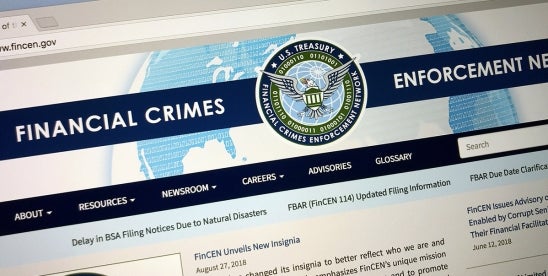A new FinCEN rule aims to crack down on money laundering through real estate by requiring certain persons to report high-risk real estate transfers to FinCEN . Key Takeaways: Criminals often favor money laundering through residential real estate because non-financed transfers of residential real estate allow them to avoid government scrutiny The FinCEN rule expands Bank Secrecy Act reporting requirements to real estate professionals Violations of the rule can be reported under the AML Whistleblower Program The final rule will take effect on December 1, 2025 The Financial Crimes Enforcement Network ( FinCEN ), a bureau within the United States Department of Treasury, has issued a new investment advisor rule to protect residential real estate from illicit finance, such as money laundering . Criminals often favor money laundering through residential real estate because non-financed transfers (including “all-cash” sales) of residential real estate allow them to avoid government scrutiny.
FinCEN’s new rule aims to increase transparency by requiring certain defined persons, such as real estate or escrow agents involved in real estate transfers, to report to FinCEN about specific high-risk transfers. The final investment adviser rule also standardizes anti-money laundering/countering the financing of terrorism (AML/CFT) requirements across the real estate industry by obligating advisers registered with the U.S.
Securities and Exchange Commission (SEC) to report compliance and .


















